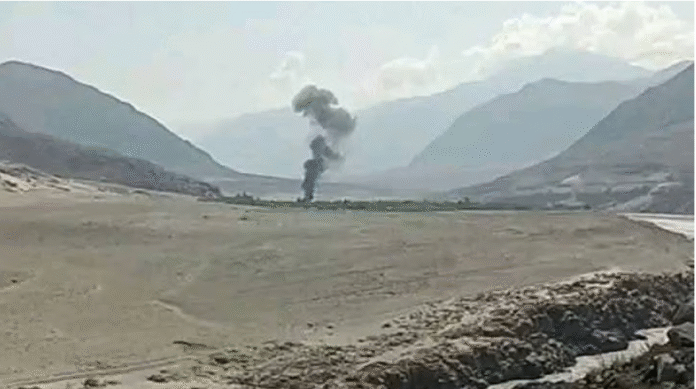At least five crew members, including two pilots, were killed when a helicopter crashed in Gilgit-Baltistan’s Chilas.
Islamabad
At least five crew members, including two pilots, were killed on Monday when a helicopter crashed in Pakistan-occupied Kashmir’s Gilgit-Baltistan region, officials confirmed. The incident occurred in the Chilas area of Diamer district, according to a statement by Gilgit-Baltistan government spokesperson Faizullah Faraq.
“The helicopter crashed in Thor, Chilas, and the crew comprised two pilots and three technical staff,” Faraq said. Diamer Senior Superintendent of Police Abdul Hameed confirmed all five onboard perished in the crash.
Authorities said the aircraft was carrying out a test landing on a newly proposed helipad at the time of the accident. The exact cause of the crash has not yet been determined, and investigations are underway to ascertain what led to the tragic incident.
This is the second helicopter crash reported in the region in recent weeks. Last month, a helicopter operated by the Khyber Pakhtunkhwa government went down under unclear circumstances, raising concerns over aviation safety in Pakistan’s northern areas.
Rescue teams were dispatched to the crash site to recover the bodies and secure the wreckage. Local officials have called for a thorough investigation to prevent similar incidents in the future.
The fatalities mark a significant loss for the region’s aviation operations, particularly as helicopters play a critical role in connecting remote areas of Gilgit-Baltistan, including transport, rescue, and medical missions. Authorities have urged caution and strict adherence to safety protocols during all ongoing helicopter operations in the region.



